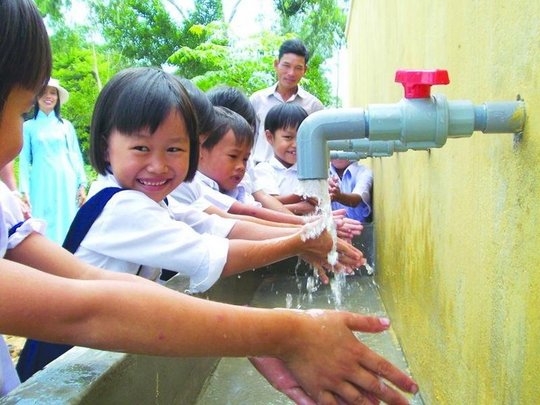News & Updates
Investment in sustainable water management is critical for Vietnam
19 March 2018

Vietnam is facing a water crisis driven by environmental damage, climate change and unsustainable water exploitation. Additionally, the country is struggling to address challenges in resource management in environmentally sustainable ways.
Last week in Hanoi the Ministry of Natural Resources and Environment held a workshop in preparation of World Water Day 2018 themed ‘Green solutions for water resources’.
Deputy Minister Trần Quý Kiên commented that the negative impacts of climate change and exploitation of water resources has seriously affected water resources in Vietnam:
“The workshop is held in response to World Water Day 2018 with the theme ‘Nature for Water’ to highlight the important role of nature in water resources protection and call for the application of available solutions in nature to address water challenges”
“Discharge of untreated wastewater into water sources is frequent and widespread, resulting in pollution of rivers,” he added.
Vietnam has done much to manage water resources wisely but it is still facing a number of challenges.
Abedalrazq Khalil, senior water resources specialist of the World Bank, noted that water resource exploitation has exceeded acceptable and safe levels in Vietnam, with waste water treatment much lower than its neighbouring countries.
This problem will be exacerbated by climate change which is set to increase storms and flooding around the country and affect agricultural production and economic development.
Abedalrazq Khalil suggested that the impact of climate change could be more than five per cent of VietNam’s GDP by 2035.
“Water is currently a major preoccupation for all Vietnamese and now could be an auspicious time to press ahead with change,” he added.
In Vietnam almost 70% of water comes from outside of the country. With the growing threat of water insecurity with climate change and population growth in the region it is critical that Vietnam invests in sustainable water management.
Abedalrazq Khalil commented:
“The inefficient use of water, constant decreases in both quantity and quality and the impact of natural disasters has put pressure on the people and economic growth”
A number of policies have been implemented in Vietnam based on market access such as tariffs, fees and charges for water use, environmental protection charges for waste water and compensation for water pollution. However, the policies were largely inadequate and failed to make use of market instruments.
If you’d like to stay informed on the latest updates in aid and development, please sign up to the AIDF newsletter.
Image credit: Global Giving